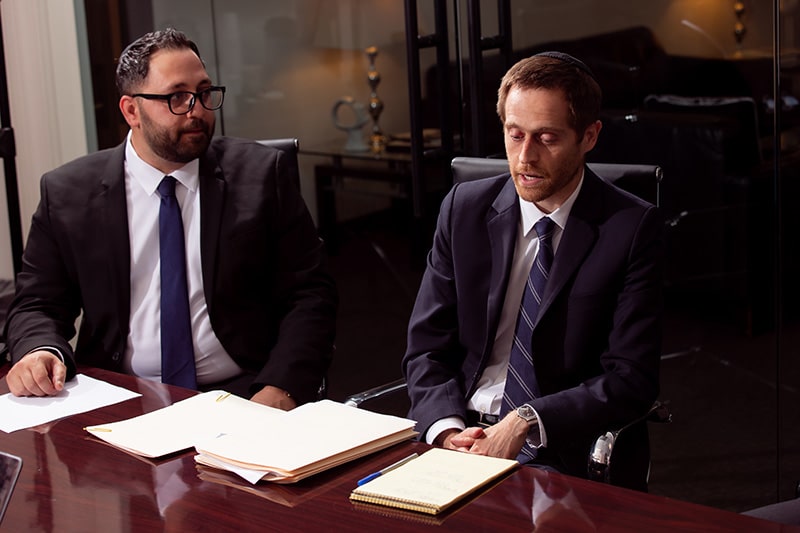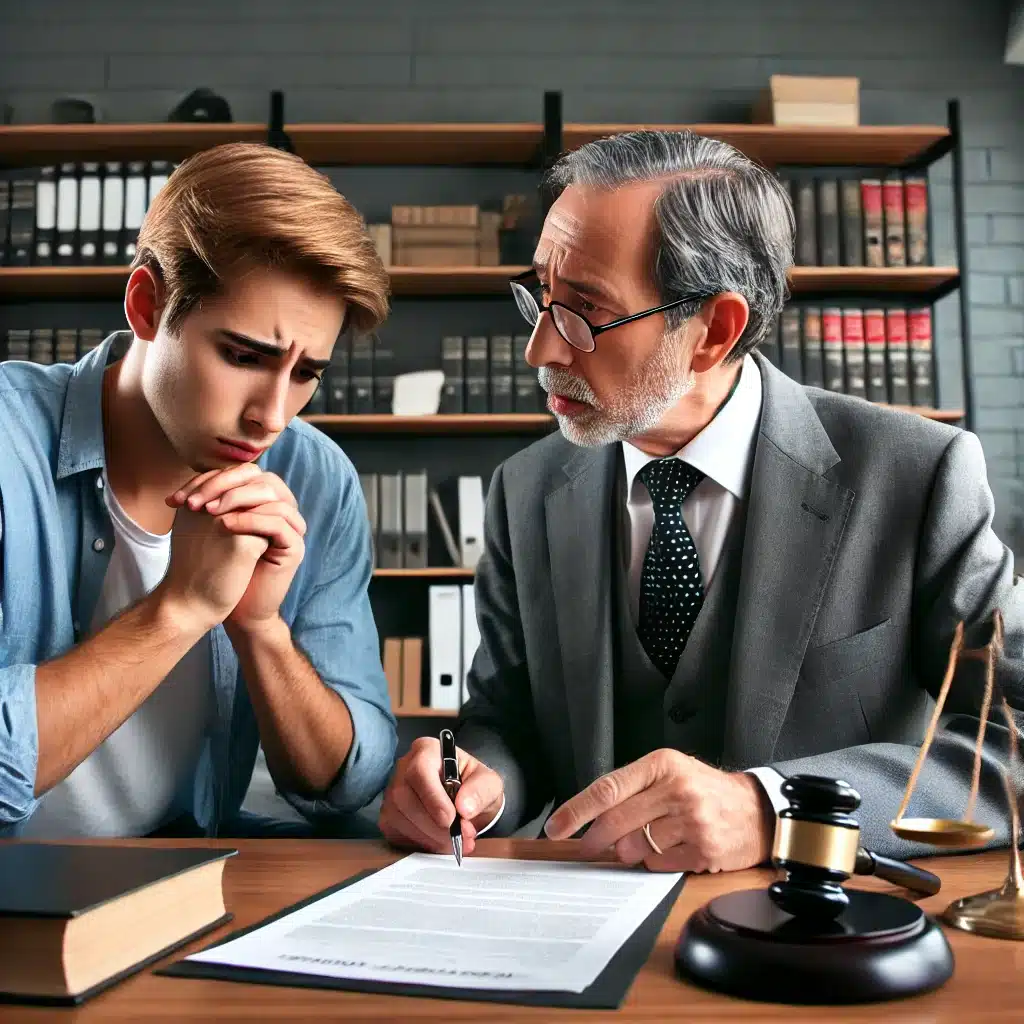Professional Attorney Insights on the Importance of Habeas Corpus
Professional Attorney Insights on the Importance of Habeas Corpus
Blog Article
Understanding the Role of a Post-Conviction Legal Representative in Looking For Justice After a Criminal Conviction
In the complicated landscape of post-conviction legal proceedings, the function of a post-conviction legal representative is critical in navigating the path to justice after a criminal sentence. Past the confines of a test, these legal experts participate in a complex strategy targeted at revealing new proof, difficult legal mistakes, and supporting for their clients' rights. The ins and outs of post-conviction job need a blend of legal acumen, investigative skills, and critical believing to decipher the complexities of a situation and pursue methods that might have been forgotten or underexplored. As the quest of justice prolongs past the confines of preliminary procedures, the duty of a post-conviction attorney becomes a sign of expect those looking for to correct oppressions and recover their legal rights within the lawful system.
Post-Conviction Lawyer's Investigative Job
Post-conviction legal representatives involve in careful investigative job to reveal brand-new proof, procedural mistakes, or misconduct that could potentially lead to reversing a conviction. This investigatory phase is vital in the post-conviction process as it aims to recognize any kind of neglected information or lawful errors that may have affected the end result of the preliminary test. Post-conviction lawyers explore instance files, witness testaments, and legal documentation with a fine-tooth comb, searching for any type of disparities or abnormalities that could be premises for charm.
Via extensive investigation, post-conviction legal representatives aim to clarify prospective injustices that might have taken place throughout the original trial. They may perform meetings, seek advice from specialists, and evaluation forensic evidence to build a compelling instance for their clients. By inspecting every aspect of the lawful proceedings, post-conviction lawyers function tirelessly to discover any kind of factors that may have influenced the decision. Inevitably, their investigative work plays a critical role in the quest of justice and the possible turnaround of wrongful convictions.
Crafting Appeals and Petitions
In the search of justice after a conviction, knowledgeable lawyers thoroughly craft appeals and requests to present engaging debates for the reconsideration of legal decisions. Crafting appeals and petitions requires a deep understanding of the legal system, attention to detail, and tactical thinking. Post-conviction attorneys evaluate trial records, identify potential errors or violations of rights, and develop lawful debates to test the sentence or sentence.
When crafting a charm, attorneys focus on highlighting legal errors that might have influenced the end result of the situation. They investigate situation law, statutes, and legal criteria to sustain their disagreements. Petitions, on the other hand, might include providing new evidence that was not offered during the trial or showing adjustments in the legislation that require a review of the sentence.
In addition, post-conviction lawyers should stick to stringent procedural regulations and target dates when filing appeals and applications. They should provide their disagreements clearly and persuasively to encourage the court to give alleviation to their customers. Through thorough crafting of charms and petitions, post-conviction legal representatives strive to safeguard justice for individuals that have been wrongfully founded guilty or unfairly punished.

Pursuing Post-Conviction Relief
Post-conviction alleviation incorporates an array of legal systems developed to test the validity of a conviction or sentence. Post-conviction lawyers play an essential role in browsing these complex treatments, making sure that all legal alternatives are discovered to fix injustices that might have happened during the test or sentencing phase.
One common form of post-conviction relief is filing a request for post-conviction alleviation, commonly based on claims of ineffective aid of counsel, prosecutorial transgression, newly found proof, or constitutional offenses. Experienced post-conviction legal representatives possess the skills and knowledge required to identify practical legal claims, carry out examinations, and existing compelling disagreements to protect relief for their clients.
Using Forensic Evidence
When challenging a conviction or sentence, the strategic use of forensic proof can be a powerful tool in post-conviction legal proceedings. Forensic proof incorporates a vast array of clinical methods utilized to examine criminal offenses and establish facts in court. Post-conviction lawyers can leverage forensic proof to test the credibility of convictions by presenting brand-new clinical findings that were not readily available throughout the initial trial.

Taking Part In Sentence Adjustments
Post-conviction attorneys might check out the opportunity of sentence adjustments as a legal opportunity to attend to out of proportion or unfair sentences bied far in criminal situations. Sentence alterations entail looking for adjustments to the regards to an accused's sentence after a conviction has occurred. These modifications can include reducing the size of a sentence, modifying the kind of penalty imposed, or exploring alternative sentencing alternatives.
Post-conviction attorneys can pursue sentence alterations via numerous lawful devices, such as submitting motions for sentence decrease, appealing for thoughtful launch, or discussing plea deals for lowered sentences. They have to very carefully evaluate the situations of the instance, assess the lawful premises for seeking an alteration, and existing compelling debates to the court sustaining the need this content for a modified sentence.
Taking part in sentence modifications calls for an extensive understanding of criminal regulation, punishing guidelines, and the specific treatments included in looking for post-conviction relief. Post-conviction lawyers play a crucial function in advocating for reasonable and just outcomes by tough sentences that are unduly severe or do not straighten with the principles of justice.
Conclusion
Finally, the role of a post-conviction attorney is essential in looking for justice after a criminal conviction. With investigatory work, crafting appeals and applications, pursuing post-conviction alleviation, making use of forensic evidence, and participating in sentence modifications, these attorneys play a crucial duty in advocating for their customers and ensuring that their legal rights are upheld within the criminal justice system. Their commitment and knowledge are crucial in navigating the intricacies of post-conviction proceedings and accomplishing a reasonable outcome for individuals dealing with criminal sentences.
Report this page